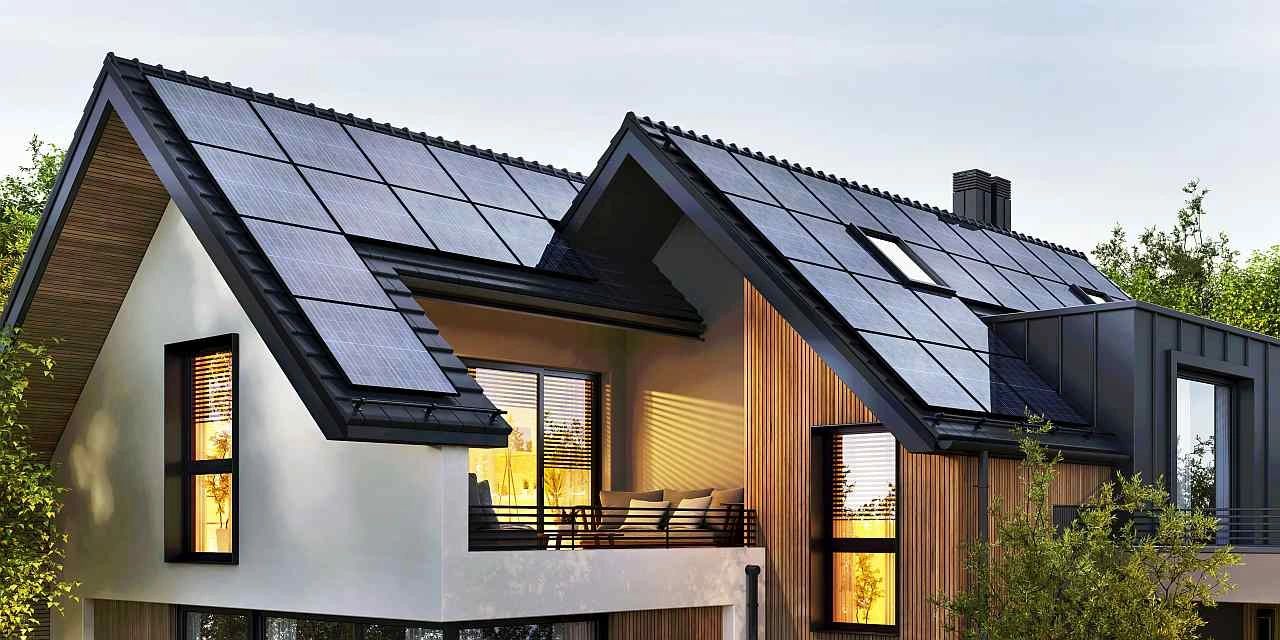Explore the best solar companies in Hawai’i for 2025. Learn about incentives, costs, and the benefits of going solar in paradise. Get expert advice and find the perfect solar solution for your needs, including leased versus owned PV systems.
Navigating Solar Energy Options in the Aloha State
Hawai’i, with its abundant sunshine and commitment to clean energy, has become a hotspot for solar power adoption. As the state aims to achieve 100% clean energy by 2045, the demand for solar energy solutions continues to rise. However, for residents considering going solar, navigating the various options can be daunting. From lease versus owned systems to the latest technological trends and tax incentives, there are numerous factors to consider.
In this week’s Home Renovation Blog post, we’ll dive into these aspects to help you make an informed decision about embracing solar energy in Hawai’i.
Top Solar Companies in Hawai’i 2025
As of 2025, several solar companies stand out in Hawaii for their exceptional services and customer satisfaction. Here are the top five:
- RevoluSun Hawaii: Recognized for its best-in-class value and customer service, RevoluSun offers top-tier equipment and various financing options. The company provides a 25-year equipment warranty and a 20-year roof leak coverage.
- Malama Solar: Based in Honolulu, Malama Solar is praised for its regional expertise and customer satisfaction. The company offers products from leading manufacturers and employs NABCEP-certified technicians. Financing options include cash and solar loans.
- Independent Energy Hawaii: Known for excellent customer service, Independent Energy Hawaii employs NABCEP-certified technicians and offers products from leading manufacturers. The company provides a 25-year equipment warranty and financing options including cash and solar loans.
- Sunrun: Known for its flexible leasing options, Sunrun is a great choice for homeowners who prefer a monthly payment plan without upfront costs.
Remember to do your own research and get multiple quotes from different companies before deciding.
Getting Started with Solar in Hawai’i: How the Process Works
Once you’ve requested a free quote from a solar company, an advisor will arrange a virtual consultation to fine-tune your solar panel system design.
During this session, they’ll analyze your recent utility bills to gauge your current energy consumption and anticipate any future changes, such as plans to add electric vehicles or heat pumps. It’s essential to provide an accurate history of electric usage at the property to the solar representative.
The representative will also discuss your savings goals and any aesthetic preferences you have. They will determine a rough estimate of the size of your roof from satellite photos.
A site survey is then conducted to determine the exact specifications for your home. Generally, within a week, you will receive a CAD design of the solar panel layout; the specifics of your system and the estimated annual and monthly output; your cost to purchase the system (or, if leasing, the monthly lease payments); and explanation of the available tax credits available to you that reduces your out-of-pocket cost.
Using this information, your solar advisor will draft the lease contract or purchase agreement. They will take care of obtaining any necessary permits or approvals from the county before scheduling the installation, which can take from a few weeks to a couple of months in Hawai’i.
Once the permit is issued, installation is typically completed in a single day, although installation may precede the receipt of permission to operate (PTO) from HECO by a few weeks. Once granted, you’ll be ready to switch on your system and begin harnessing the sun’s energy for your home.
Pros and Cons of Lease versus Owned Photovoltaic Systems
When considering solar energy, one of the primary decisions is whether to lease or own the system. Let’s explore the pros and cons of each:
Lease Systems:
Pros:
· Lower upfront costs: Leasing allows homeowners to install solar panels with little to no upfront costs, making it a more accessible option for many.
· Maintenance included: With a lease, maintenance and repairs are typically covered by the leasing company, alleviating the homeowner from these responsibilities.
Cons:
· No ownership benefits: With a lease, homeowners do not own the solar panels, meaning they miss out on potential tax incentives and the ability to take advantage of long-term savings and home value increases.
· Long-term costs: While lease payments may start low, they often increase over time, potentially costing more in the long run than owning a system. If your goal of switching to solar is to save as much money as possible, solar leasing is not the best option. Most solar companies in Hawai’i do not offer lease agreements like Sunrun. Sunrun says that for most customers, their lease payment is less than what they spent previously on energy, which is generally true, but the potential long-term savings are much higher with a solar purchase.
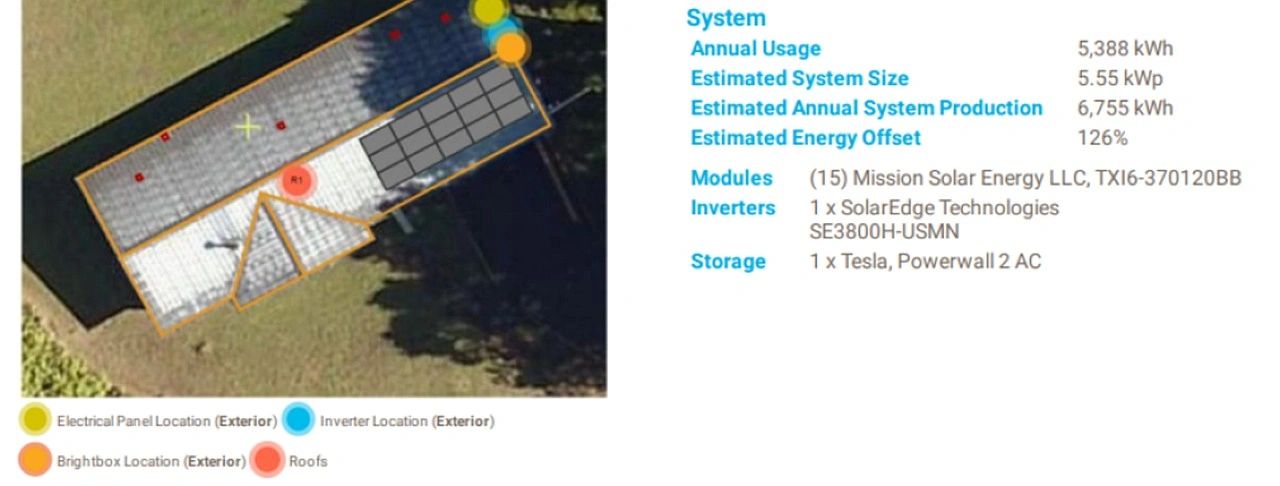
Worth noting: Sunrun does offer a buy-out after five years of leasing, at which point an independent, third-party appraiser will provide an estimated buyout price, which will be reduced by the amount of tax credits that Sunrun received for the system.
Owned Systems:
Pros:
· Ownership benefits: Homeowners who purchase a solar energy system are eligible for various tax incentives and rebates, including federal and state tax credits and HECO solar incentive programs.
· Increased home value: Studies have shown that homes with solar panels tend to sell for more. According to the National Renewable Energy Laboratory (NREL), every dollar saved on electrical bills due to solar panels can increase your home’s value by $20. Additionally, Zillow reports that homes with solar panels sell for 4.1% higher on average than comparable homes without them, which translates to an additional $9,274 for the median-valued home.
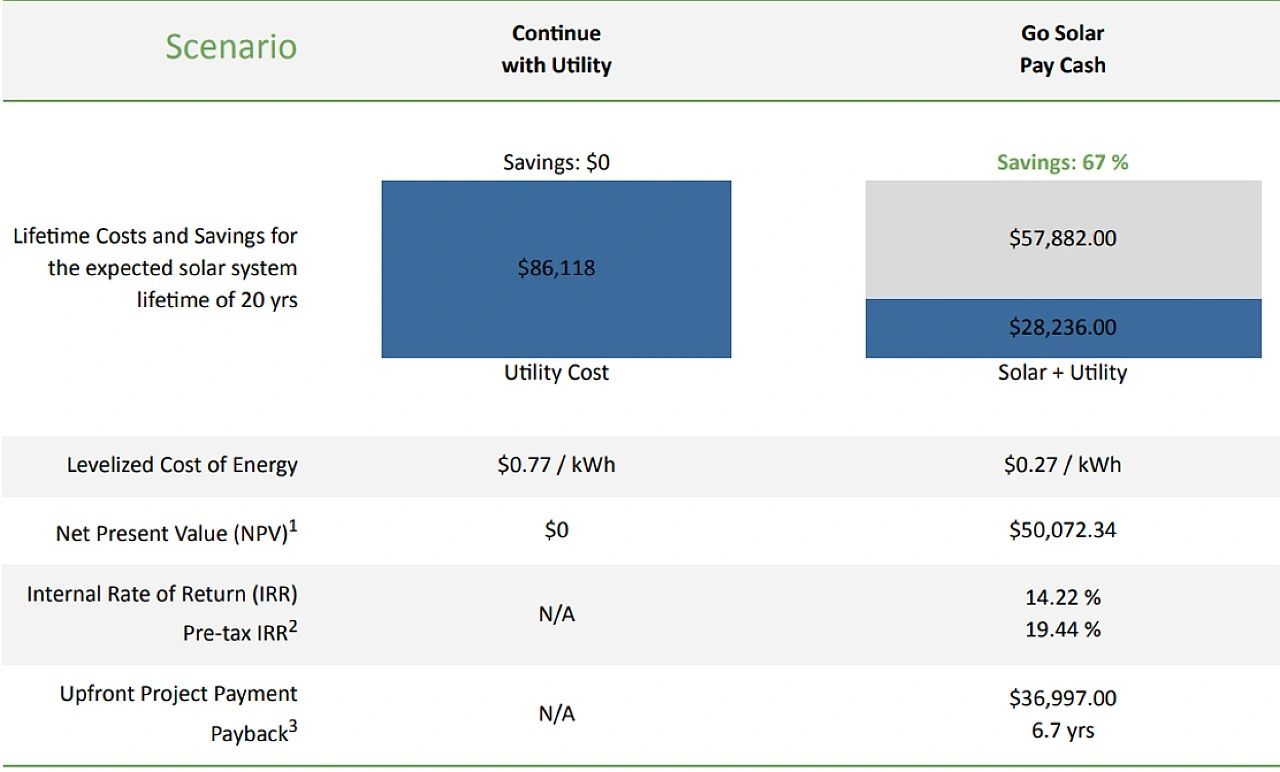
· Increased savings in the long run: “That’s especially true if you’re able to pay cash for the system, as opposed to financing it,” says Spencer Fields, director of insights at EnergySage. “Savings over 25 years could be as high as $90,000; a solar lease won’t deliver anywhere near that kind of return.”
Cons:
· Higher upfront costs: Purchasing a solar energy system requires a significant upfront investment, which may be prohibitive for some homeowners. Even if you factor in the tax rebates when figuring out your total investment cost, you still need to come up with the full payment at the time of installation, which in our examples below, is around $36,000. There are lenders that will provide a “green” loan for the purpose of solar system installation, and another good option is a Home Equity Line of Credit if you have access to one.
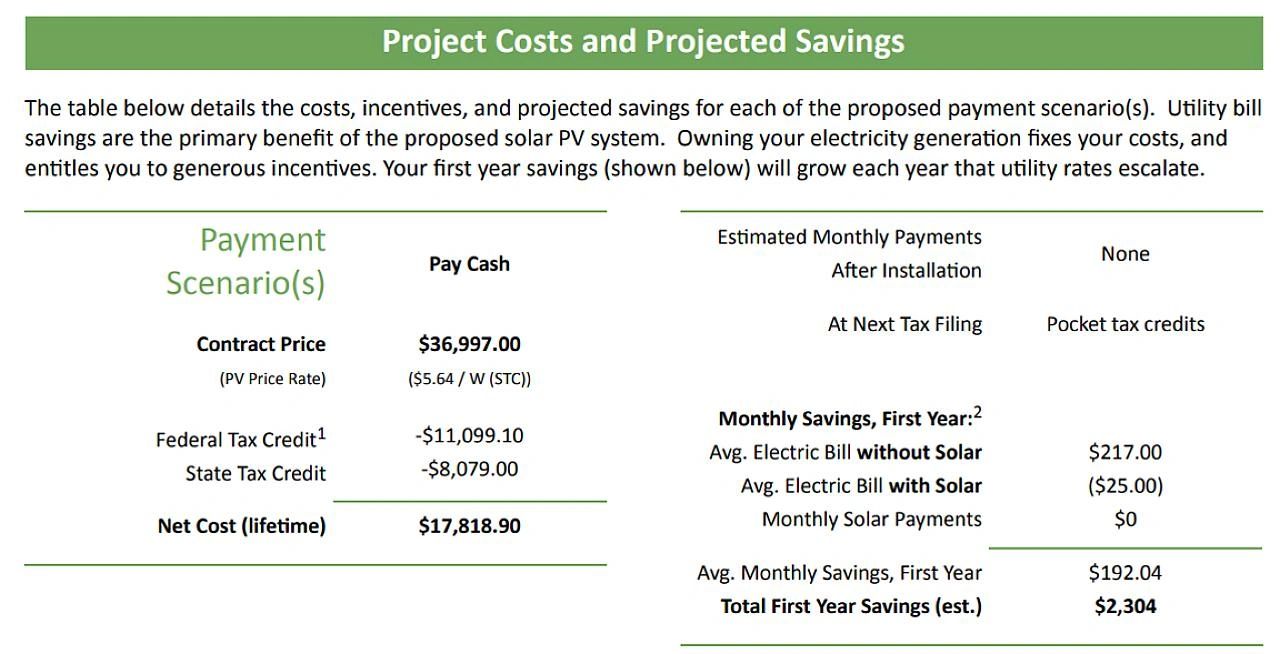
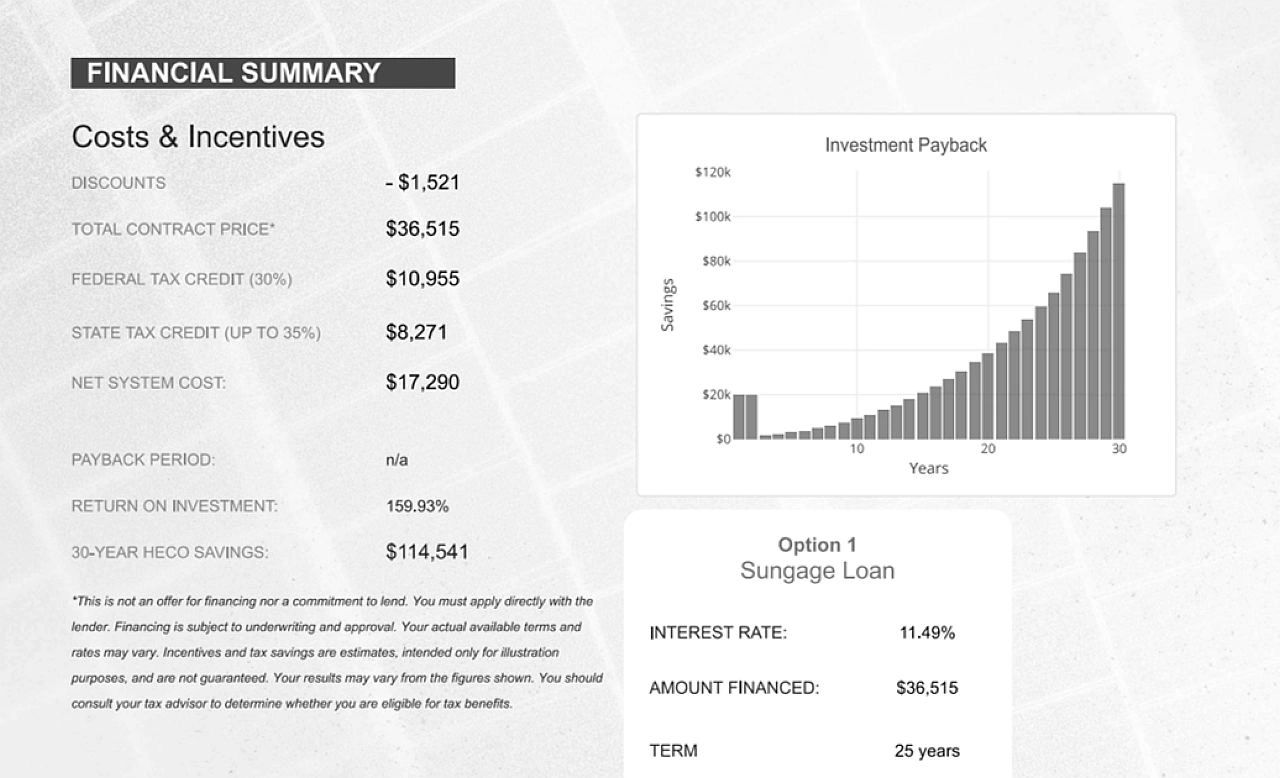
· Maintenance costs: While ownership provides potential savings in the long run, homeowners are responsible for maintenance and repairs.
Latest Trends in Technology
· Advancements in solar technology continue to enhance the efficiency and affordability of solar energy systems. Some notable trends in Hawai’i include:
· Energy Storage Solutions: With the rise of battery storage technology, homeowners can store excess solar energy for use when the sun isn’t shining, such as at night or during cloudy days. This helps maximize energy independence and resilience. Before 2016, battery storage was not included with solar panel installation from many solar companies, including Sunrun. Now, all solar companies provide battery storage as part of their solar systems.
· Smart Home Integration: Integrating solar energy systems with smart home technology allows for greater control and optimization of energy usage. From monitoring energy production to adjusting consumption patterns, smart home integration maximizes efficiency and savings.
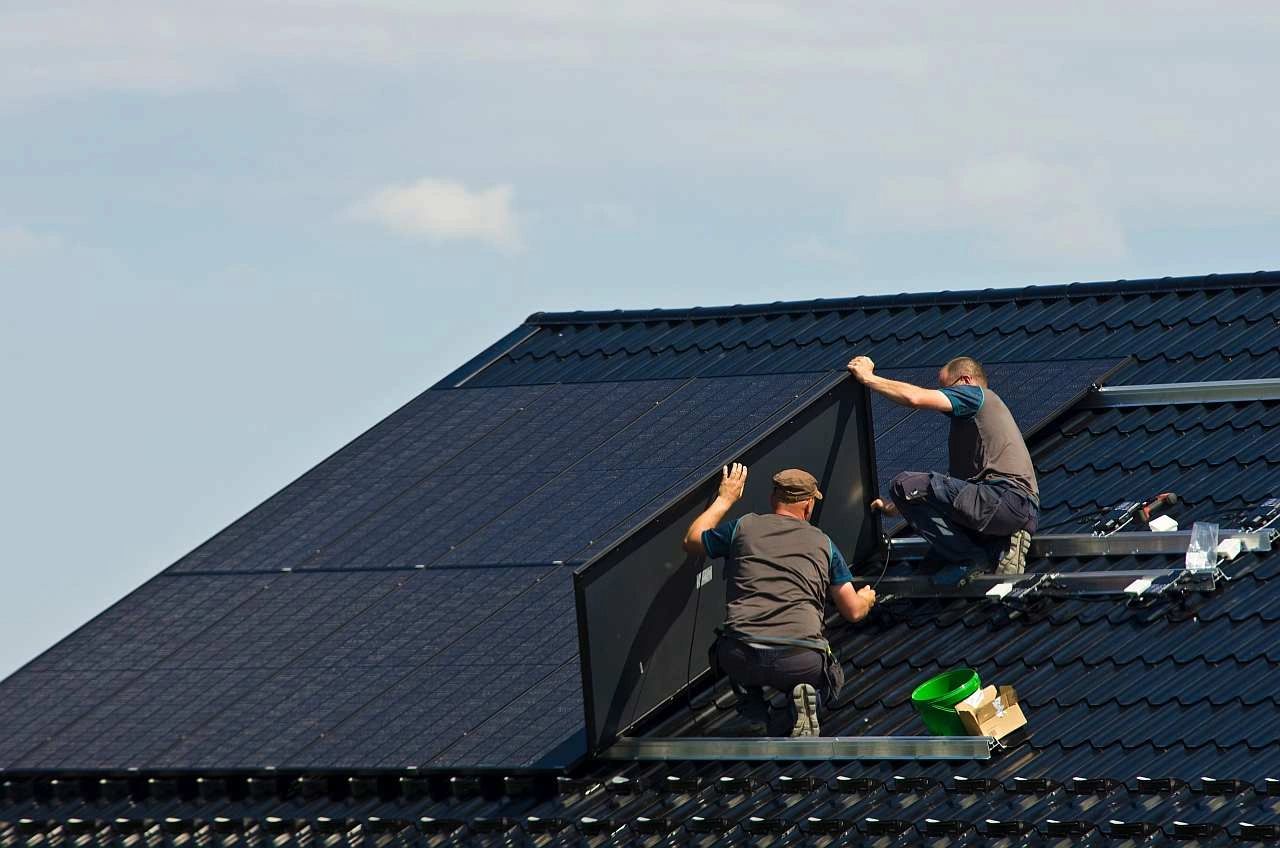
Hawai’i and Federal Tax Solar Energy Incentives
Hawai’i offers several incentives to encourage the adoption of solar energy:
· Federal Investment Tax Credit (ITC): If you install your photovoltaic system before the end of 2032, the federal tax credit is 30% of the cost of your solar panel system. This is 30% off the entire cost of the system including equipment, labor, and permitting. Example: If your solar energy system costs $20,000, your federal solar tax credit would be $20,000 x 30% = $6,000.
· Hawai’i Renewable Energy Technologies Income Tax Credit: If you buy a solar system in the Aloha state, you’ll see 35% of the cost come back as a credit at tax time, in addition to the federal tax credit.
Worth noting: Although both tax credits can give you a healthy discount on your tax bill, the savings are only realized if you have some tax liability. If you don’t plan on owing much in federal or state taxes, these discounts will not be as effective in lowering your overall solar panel system cost.
· Net Metering: Hawai’i no longer has net metering for solar owners. In April 2024, HECO introduced its latest version of solar incentive programs. According to a recent press release from HECO, “the new framework includes a Smart DER (distributed energy resources) program that will replace the company’s legacy rooftop solar programs, except the closed Net Energy Metering program. A new incentive program called “Bring Your Own Device,” or BYOD, will replace the Battery Bonus program.” Under the revised timeline, customers on all islands served by Hawaiian Electric can sign up for Smart DER and BYOD. This is an important new development because several of HECO’s previous programs were available on other islands but not Hawai’i Island. More information is available at hawaiianelectric.com/renewableprograms.

One last thing: Beware of Scams
I recently saw a commercial that stated: “Do you know the solar companies’ nasty little secret? It turns out that if you live in Hawai’i, solar companies are required to give you solar panels for no money out of pocket.” This is some twisted wordplay, and as always, if something seems too good to be true, it probably is. It’s always a good idea to get multiple quotes and read recent reviews to find the best fit for your solar energy needs.
Solar Options in Hawai’i: Conclusion
As Hawai’i strives to achieve 100% clean energy by 2045, solar power plays a pivotal role in this transition. When deciding between lease and owned systems, homeowners must weigh the upfront costs, ownership benefits, and long-term savings. Keeping abreast of the latest technological trends can help maximize the efficiency and performance of solar energy systems.
Furthermore, taking advantage of Hawaii’s and federal tax incentives can make solar energy more affordable and accessible. By harnessing the power of the Hawaiian sun, homeowners can contribute to a sustainable future while enjoying the benefits of renewable energy.
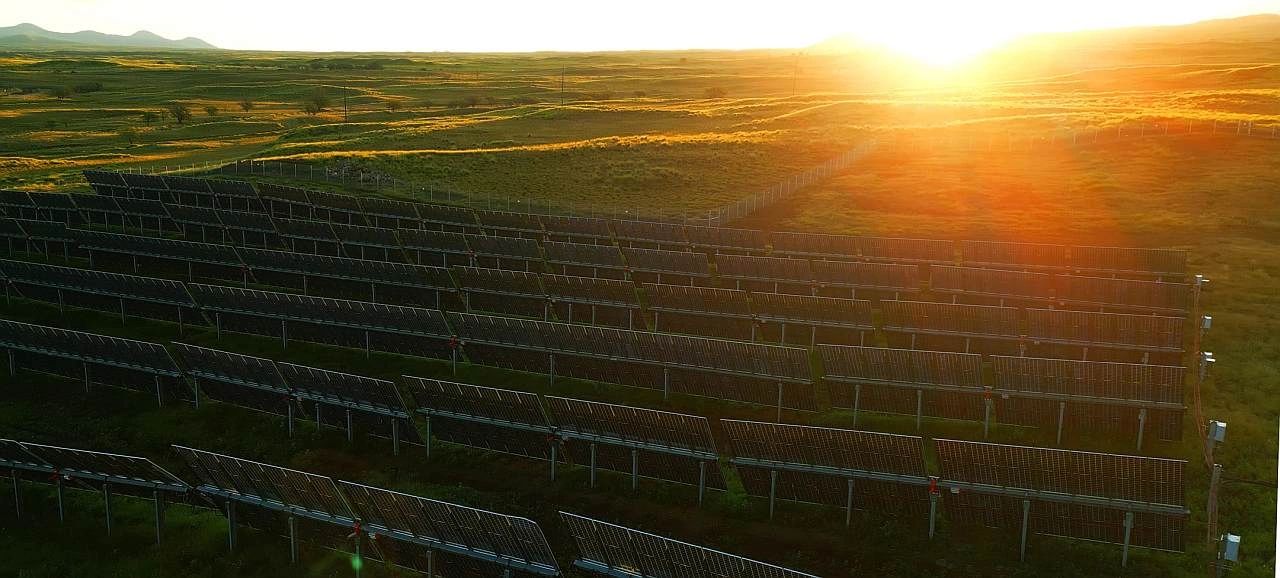
Be sure to check out our Home Renovation Blog post with more eco-friendly home renovation ideas in Hawai’i. As always, mahalo for joining us at Eco-Luxe Living: Hawai’i! If you have a home renovation idea or question, we’d love to hear from you!
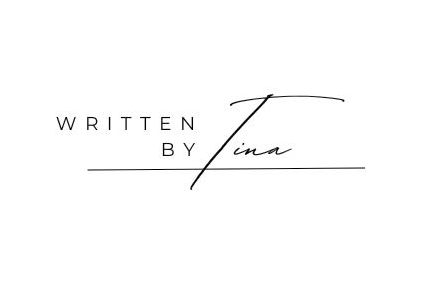

Solar Energy Resources:
General Solar Energy Resources:
- Solar Energy Industries Association (SEIA)
- Hawaii Energy
- Hawaiian Electric Renewable Energy Sources
- U.S. Department of Energy
Hawaii-Specific Solar Energy Resources:
Solar Company Reviews and Comparisons:
Local Hawaiian Solar Companies:
